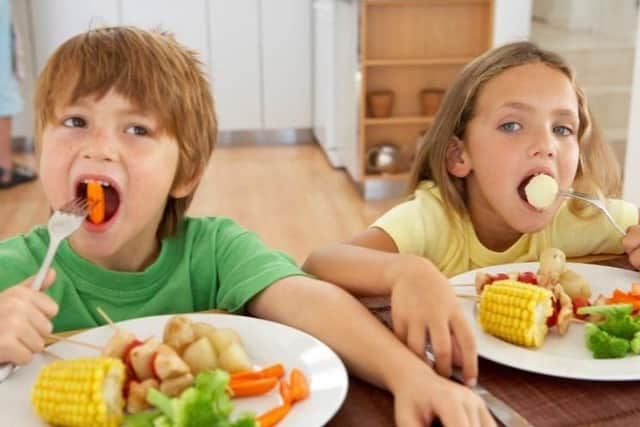The Health and Wellbeing column with Heart Research UK: Helping our little ones thrive as good eaters


Every parent or guardian has their own style of child-rearing, but ultimately every family has the same goal, which is to raise a healthy and happy child.
With a little intention and the right tools, we can do a lot to help our little ones thrive as good eaters!
Advertisement
Hide AdAdvertisement
Hide AdHere we explore some of the ways you can encourage your child to adopt healthy eating habits.
Reward and punishment
We have all been there; we just want our little people to eat something! But parents and carers should carefully consider the use of food as a reward or punishment.
Children have a natural ability to regulate their eating and using foods as a reward or punishment can undermine healthy eating habits, as it encourages them to eat when they are not hungry.
Why not offer children non-edible objects or experiences as rewards, rather than food?
Advertisement
Hide AdAdvertisement
Hide AdFor example, you could offer stickers or a trip to the park, as an alternative treat.
Also don’t underestimate the power of verbal praise!
‘Clean your plate’
Pressuring children to ‘clean their plate’ may work in the short term, but it doesn’t promote long term healthy eating. It can also lead to a distaste for those nutritious foods they are being forced to eat.
Instead, help a child to feel supported, safe, and relaxed at the dinner table, by creating positive interactions with food. When a child feels safe, they are much more likely to want to eat and try new foods!
Offering choice
As parents, we can’t give our kids complete control over food, but we can guide them on making healthy choices.
Advertisement
Hide AdAdvertisement
Hide AdFor young children, you may give them to two or three options to choose from e.g, ‘would you like either toast or cereal for breakfast?’.
Guided choices can be helpful as they enable a child to feel like they have their say and a degree of control, without feeling overwhelmed.
Eating is so messy!
Unfortunately, as much as we hate the mess, letting your kids get messy with food can be a big positive in relation to their eating habits.
Being messy with food, gives children the opportunity to learn about new foods using all their senses.
Advertisement
Hide AdAdvertisement
Hide AdChildren who feel safe to touch, squash and play with their food become more familiar with the food and are more likely to snack on this later.
Maybe consider if you can embrace the mess at mealtimes, or alternatively consider dedicated ‘food playtime’.
○ For more tips on how to stay healthy, sign up to Heart Research UK’s weekly healthy tips at www.heartresearch.org.uk/healthy-tips
○ To help keep your heart healthy, why not try out some of the charity’s Healthy Heart recipes from our website: https://heartresearch.org.uk/heart-research-uk-recipes-2/